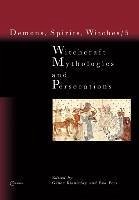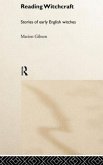This third, concluding volume of the series publishes 14 studies and the transcription of a round-table discussion on Carlo Ginzburg's Ecstasies. The themes of the previous two volumes, Communicating with the Spirits, and Christian Demonology and Popular Mythology, are further expanded here both as regards their interdisciplinary approach and the wide range of regional comparisons. While the emphasis of the second volume was on current popular belief and folklore as seen in the context of the historical sources on demonology, this volume approaches its subject from the point of view of historical anthropology. The greatest recent advances of witchcraft research occurred recently in two fields: (1) deciphering the variety of myths and the complexity of historical processes which lead to the formation of the witches' Sabbath, (2) the micro-historical analysis of the social, religious, legal and cultural milieu where witchcraft accusations and persecutions developed. These two themes are completed by some further insights into the folklore of the concerned regions which still carries the traces of the traumatic historical memories of witchcraft persecutions.
Hinweis: Dieser Artikel kann nur an eine deutsche Lieferadresse ausgeliefert werden.
Hinweis: Dieser Artikel kann nur an eine deutsche Lieferadresse ausgeliefert werden.








